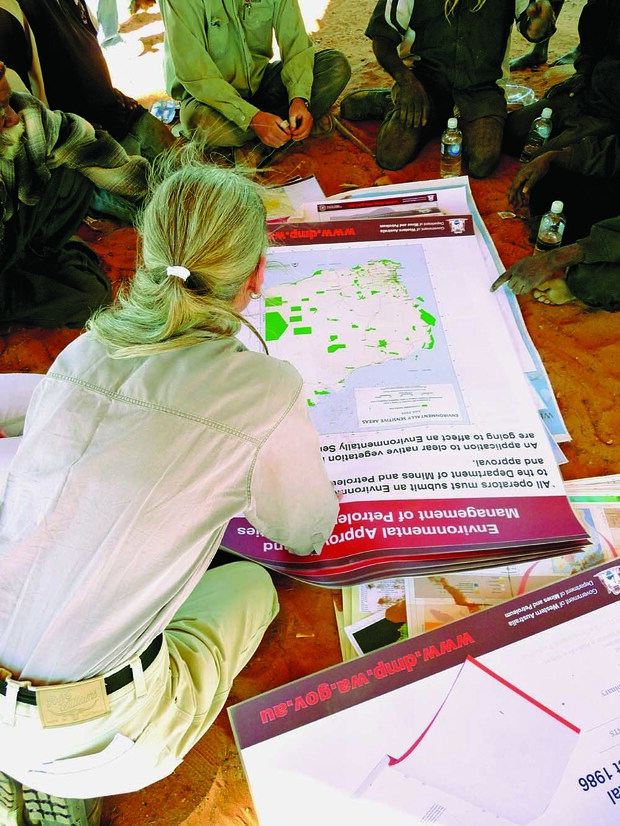The Department of Mines, Industry Regulation and Safety considers the Native Title Act 1993 (Cwth) future implications in all aspects of its title administration business, under the State’s Petroleum and Geothermal Energy Resources Act 1967 (WA) and the Petroleum and Submerged Lands Act 1982 (WA).
Grant and renewal of petroleum titles and authorities
As the Native Title Act 1993 treats offshore areas differently from onshore areas. An offshore place is defined as seaward of the low water mark. An onshore area refers to the mainland and any islands forming part of WA.
Petroleum title applications in respect to offshore and inter-tidal areas under the Petroleum and Submerged Lands Act 1982 may be granted following a notification and consultation process. Petroleum title applications in the onshore area will attract either the right to negotiate or the expedited procedures of the Native Title Act 1993.
In all cases, where a renewal affects native title rights, the renewal will be a permissible future act under the Native Title Act 1993 – providing certain conditions are met. Find out more about the Grant and Renewal of Titles and Authorities (page113).
Future act processes

Acknowledgement is given to the Federal Court of Australia, Commonwealth of Australia’s Attorney-General’s department and the National Native Title Tribunal as the primary reference sources.
A future Act is an act done after 1 January 1994, which may affect Native Title. An Act ‘affects’ Native Title if it extinguishes or is otherwise wholly or partly inconsistent with the continued existence, enjoyment or exercise of Native Title rights and interests. An act of government may ‘affect’ Native Title if, for example, it allows activities to be performed on land where Native Title has been determined or is claimed to exist. This is particularly the case if it prevents Native Title holders from conducting activities such as hunting and ceremonies. In the petroleum context, this applies to the grant or renewal of licences and permits.
The Native Title Act 1993 seeks to protect Native Title rights by prescribing procedures that must be complied with by Commonwealth, State and Territory Governments before a future Act can be validly done. Read more about Future Act processes (page 113).
Right to negotiate process
One of the fundamental principles of the future Act regime is any relevant act will not affect Native Title unless it is in accordance with the Native Title Act 1993 procedures. Find out more about the right to negotiate process (page 113).
Indigenous land use agreements
Indigenous Land Use Agreements are voluntary, legally binding agreements about the use and management of land and waters. They are made between people who hold or may hold Native Title in the area and other organisations or governments. Under Land Use Agreements, Native Title holders may give their consent to a relevant act or class of acts’ activties such as the granting of Exploration Licences. Once these Agreements are entered onto the Register or maintained by the National Native Title Tribunal, acts can validly carried out without applying other provisions like right to negotiate. Read more about Indigenous Land Use Agreements (page 114).
Non-Extinguishment principle
In most cases, the Non-Extinguishment Principle applies to acts that are performed under the future Act regime or a registered Land Use Agreement. Where this Principle applies, Native Title will not be extinguished by a future act, but rather suppressed for the period of time that the future act (for example the grant of a petroleum permit) is in operation. Where the period of operation has ended, Native Title will no longer be suppressed.
Expedited procedure
An act that attracts the expedited procedure is unlikely to interfere directly with:
- the carrying on of community or social activities of the relevant native title parties.
- areas or sites of particular traditional significance to the Native Title parties.
- land or waters.
For further information on the Expedited Procedure (page 114).
Pipeline Licences
The granting of Petroleum Pipeline Licences (which involve no land tenure) under the Petroleum Pipelines Act 1969 (WA) is a separate process to Native Title future act processes concerning the land upon which a pipeline is constructed.
When a pipeline is to be constructed over land under a registered Native Title claim or determination, then agreement must be reached with the Native Title parties concerning an easement or lease of land under the Land Administration Act 1997 (WA), or alternatively the land must be compulsorily acquired.
